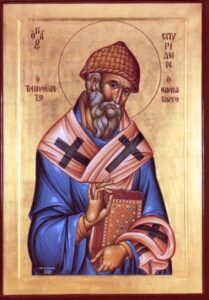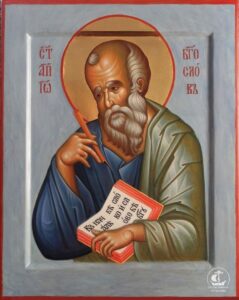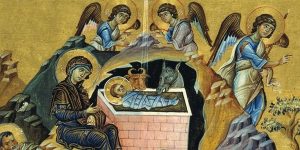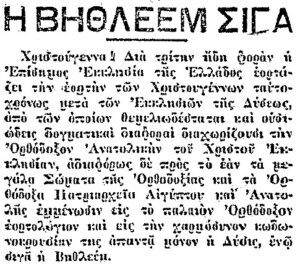The Feast of the Seven Maccabees: Martyrs for the Holy Fast
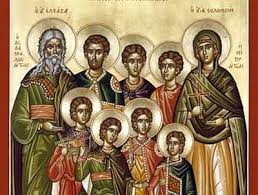
Today, as the Church commemorates the Holy Martyrs—the Seven Maccabees (their names are usually cited by Orthodox sources as Abim, Antonius, Gurias, Eleazar, Eusebonus, Alimus and Marcellus, or variations of these) their mother Solomonia, and their teacher Eleazar—we are reminded of the profound significance of fasting in our spiritual lives. Their story, rooted in the Old Testament, not only exemplifies unwavering faith and courage but also offers us a powerful reflection as we begin the Dormition Fast
The Maccabean martyrs lived during a time of great turmoil and persecution under the Seleucid King Antiochus IV Epiphanes, who sought to force the Jewish people to abandon their ancestral faith. Amongst other demands, they were told to eat pork which would be a breaking of the law of the Old Testament. These seven brothers, along with their mother and teacher, stood firm against the king’s decrees, refusing to eat foods forbidden by the Law of Moses. Their steadfastness was not merely about dietary restrictions; it was about fidelity to God’s commandments and the holiness of the Law.
Each of the seven brothers, in turn, faced gruesome tortures and death, yet none of them wavered. Their mother, Solomonia, encouraged them to endure, knowing that they would be received into eternal life. Their teacher, Eleazar, an elderly scribe, also suffered martyrdom for refusing to forsake the holy fast. Their sacrifice was not in vain; their blood became the seed of resistance against impiety and a testament to the power of living in accordance with God’s will.
The Maccabees’ refusal to violate the fast as prescribed in the Old Testament shows us that fasting is not merely a matter of abstaining from certain foods. It is an act of obedience and devotion to God. In the Old Testament, fasting was a way to humble oneself before the Lord, to seek His mercy, and to prepare for holy endeavors. The Maccabees understood this, and they chose to suffer martyrdom rather than compromise their integrity before God.
Fasting, therefore, is a spiritual discipline that aligns us with God’s will, purifies our hearts, and strengthens our resolve against the temptations of the world. The Maccabees’ example teaches us that true fasting involves not just the body but also the spirit, as we seek to draw nearer to God in all that we do.
Beginning the Dormition Fast
The Church, in her wisdom, places the feast of these holy martyrs on the first day of the Dormition Fast. This is no coincidence. As we prepare to honor the Dormition (Falling Asleep) of the Theotokos, we are called to begin with the same spirit of dedication and piety that the Maccabees exemplified.
The Dormition Fast, which lasts from August 1st to the 14th, is a time of intensified prayer, fasting, and repentance. Just as the Maccabees observed the holy fast even unto death, we too are invited to embrace the fast with sincerity, allowing it to transform our hearts and minds. This period of fasting is a preparation for the great feast of the Dormition, where we celebrate the Theotokos’ transition into eternal life—a reflection of the eternal reward that awaits all who faithfully endure in righteousness.
As we enter into this fast, let us take inspiration from the Seven Maccabees, their mother, and their teacher. Their witness reminds us that fasting is not a mere tradition but a vital expression of our faith. It is a discipline that prepares us for spiritual battles, fortifies our souls, and deepens our communion with God.
May this Dormition Fast be for us a time of renewal, as we follow the example of the Maccabean martyrs. Let us fast with the intention of growing closer to God, with the hope of receiving the grace and strength to live according to His will. And as we honor the Theotokos during this time, may we also be inspired by her purity, obedience, and love for her Son, our Lord Jesus Christ.
In the spirit of the Maccabees, let us begin this fast with resolve and joy, knowing that through our small sacrifices, we participate in the larger, eternal victory of life in Christ.

